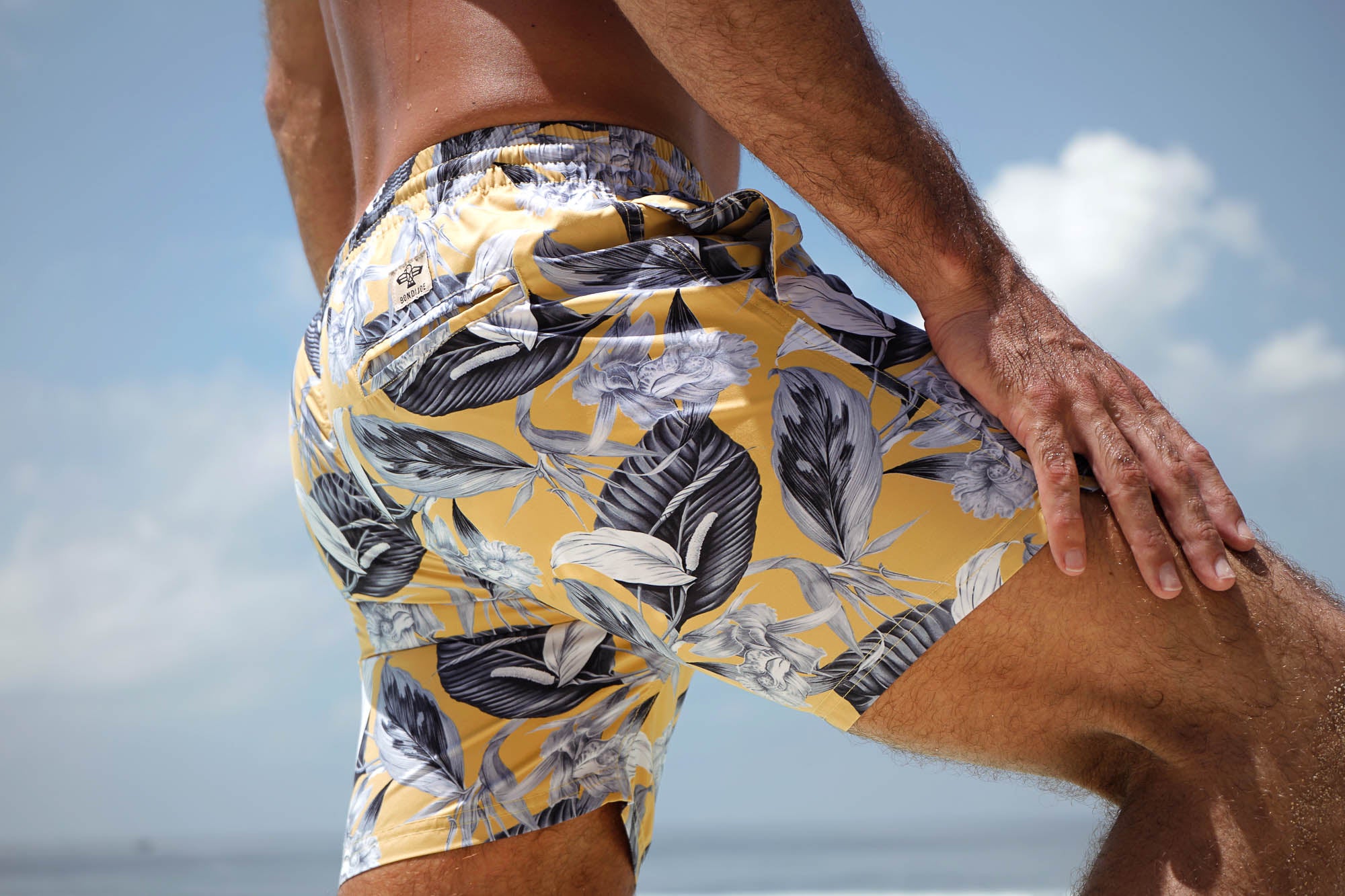
our sustainability credentials
When we created Bondi Joe, we set about ensuring that the brand lived and breathed a strong planet conscience. We wanted to make men's boardshorts that you felt great wearing and were genuinely good for the planet.

Fabrics from Recycled Materials
Bondi Joe is committed to sustainability and the fabric we make all of our mens boardshorts from 100% recycled polyester fabric.
Our recycled polyester is made from used PET (polyethylene terephthalate) plastic, most commonly in the form of water or soft drink bottles. The process of converting PET into recycled polyester requires 33-53% less energy than producing virgin polyester. At the same time, it reduces on dependence on fossil fuels and reduces landfill from plastic bottles.

Packaging from Recycled Materials
We ship around the world using polymailers made from 100%
recycled materials. When we started Bondi Joe, we tried using compostable mailers made from corn products but they weren’t strong enough to make it to destinations around the world – so we think recycled mailers are the next best thing.
Our mailers can be recycled again – so please remember to
put them into your recycling bin!

Ethical & Transparent Supply Chain
We have developed a 9-point Supplier Code of Conduct which we require our suppliers and manufacturers to read and understand. We intend to roll this out to their sub-contractors and suppliers as we grow.
The code of conduct includes provisions for working conditions, living wages, no underage labour, no excessive working hours, no discrimination, the provision of regular employment and no harsh or inhumane treatment.

I=Change $1 donation with every order
At Bondi Joe, we believe in giving back to our community, and that small actions can have big impact!
That’s why we have partnered with I=Change to donate $1 from every order to a charity of your choice. The donation reaches the charity in full, with no deductions or fees applied.
Upon completion of your order, you will be able to choose where to donate $1 of your order between three impactful projects - read more about our I=Change partnership.


